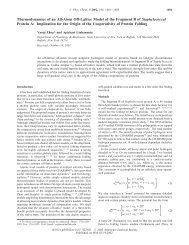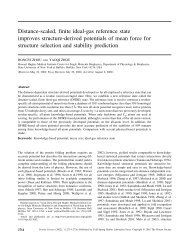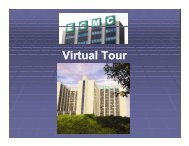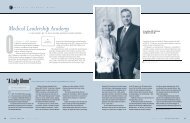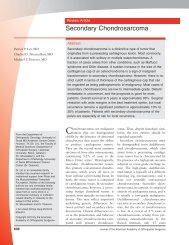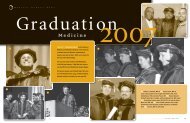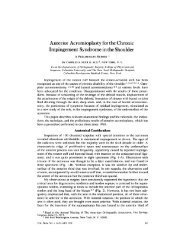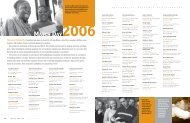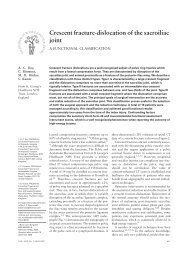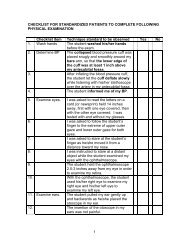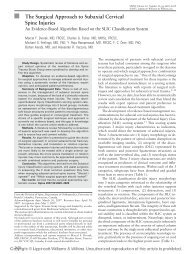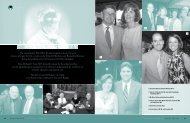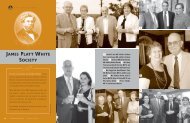Download Residency Training Program PDF - Ross Eye Institute
Download Residency Training Program PDF - Ross Eye Institute
Download Residency Training Program PDF - Ross Eye Institute
You also want an ePaper? Increase the reach of your titles
YUMPU automatically turns print PDFs into web optimized ePapers that Google loves.
Each of the resident rotations has been described and goals and<br />
expectations outlined. A copy is appended (see rotations).<br />
D. Resident Development<br />
First Year<br />
In general, first year residents are expected to show clear evidence of<br />
increasing knowledge derived from a continuous program of reading to<br />
supplement their learning in the clinics and operating room. Histories and<br />
physicals are expected to be thorough. Findings overlooked or unnoticed<br />
are considered serious deficiencies. As the year progresses, the first year<br />
resident should become competent in the following areas: retinoscopy and<br />
refractions, general ophthalmic examination, including external exam,<br />
motility and pupillary observations, slit-lamp examination, tonometry,<br />
gonioscopy, screening neuro-ophthalmic exam, fundus exam with a direct<br />
and indirect ophthalmoscope, and perimetry. Residents should develop<br />
the ability to evaluate and treat minor ophthalmic emergencies and triage<br />
more serious conditions. All pages must be answered in a timely manner.<br />
Surgical skills achieved should include corneal foreign body removal,<br />
minor lid surgery, and the rudiments of cataract surgery, including a<br />
thorough familiarity with the operating microscope and the techniques of<br />
bimanual intraocular surgery. Regular use of the microsurgery lab is<br />
expected. By the end of the first year, residents should have learned to<br />
overcome any tremors and anxieties which might limit their technical<br />
proficiency in the operating room. By the end of the first year, residents<br />
are expected to be able to examine all patients and understand the basic<br />
pathophysiology so that they can either make the correct diagnosis and<br />
render care or know the appropriate further tests or referral in order to do<br />
so.<br />
Second Year<br />
During the second year, the resident is expected to meet and hopefully<br />
exceed the academic and other requirements defined for each of his or her<br />
rotations. In general, the second year resident is expected to be able to<br />
perform the complete examination, arrive at an appropriate working<br />
diagnosis and a reasonable differential diagnosis, and make<br />
recommendations for treatment. In the subspecialty areas that the resident<br />
is exposed to through his rotations, it is expected that the diagnosis will be<br />
correct, the differential will be exhaustive, and that the appropriate<br />
medical and/or surgical treatment will be initiated. By the end of the<br />
second year, the resident is expected to be technically competent in the<br />
operating room and show evidence of good surgical judgement in the<br />
areas where training has occurred.<br />
Third Year<br />
4



